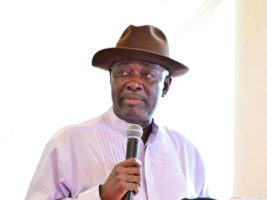The Federal Inland Revenue Service (FIRS) has opened talks with the Kingdom of the Netherlands to renegotiate the existing Double Taxation Agreement between both countries, marking a significant step in Nigeria’s evolving international tax landscape.
The discussions, which commenced at the FIRS headquarters in Abuja, follow the recent signing of the Tax Reform Bill into law by President Bola Ahmed Tinubu on 26 June 2025.
The Netherlands is the first foreign government to begin formal renegotiation with Nigeria in response to the new tax structure.
Welcoming the Dutch delegation led by Ambassador Bengt van Loosdrecht, the Executive Chairman of FIRS, Dr. Zacch Adedeji, described the engagement as timely and necessary, given recent changes in both Nigeria’s domestic tax regime and global standards.
“Recent developments in the domestic and global tax landscape have made the review of the existing agreement unavoidable,” Dr. Adedeji said. “This renegotiation meets with the policy objectives of the ongoing fiscal and tax reforms initiated by President Tinubu’s administration. We are committed to broadening the domestic tax base, strengthening tax administration, and ensuring our system supports inclusive economic growth.”
The renegotiation seeks to align the current treaty with Nigeria’s new tax laws and global efforts to curb Base Erosion and Profit Shifting (BEPS).
Officials said the talks would help remove outdated provisions and improve fairness in cross-border taxation between the two countries.
Ambassador Loosdrecht, in his remarks, expressed optimism about the process and praised the cooperative spirit of both teams. “The fact that we meet here today is an indication of the goodwill and good faith guiding these negotiations,” he said. “Ultimately, a treaty is about finding common ground, and I am confident that we will have a very fruitful week.”
The tax reform laws recently signed by President Tinubu include the Nigeria Tax Act, the Nigeria Tax Administration Act, the Nigeria Revenue Service (Establishment) Act, and the Joint Tax Board (Establishment) Act.
They restructure the country’s tax management framework and provide for a six-month transition period ahead of the full commencement of the Nigeria Revenue Service on 1 January 2026.
During this window, Nigeria will harmonise its tax data, implement new systems, and review existing international agreements to reflect the reformed tax structure.
FIRS officials say the process represents a broader effort to modernise Nigeria’s tax environment and foster stronger economic partnerships.





